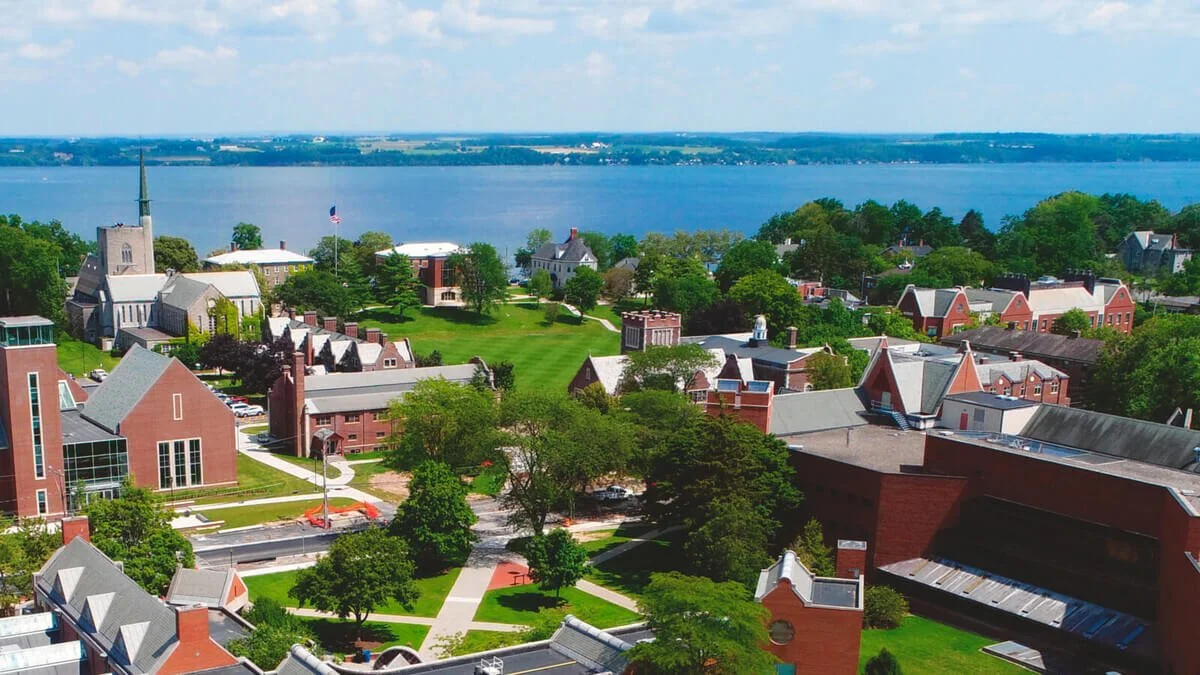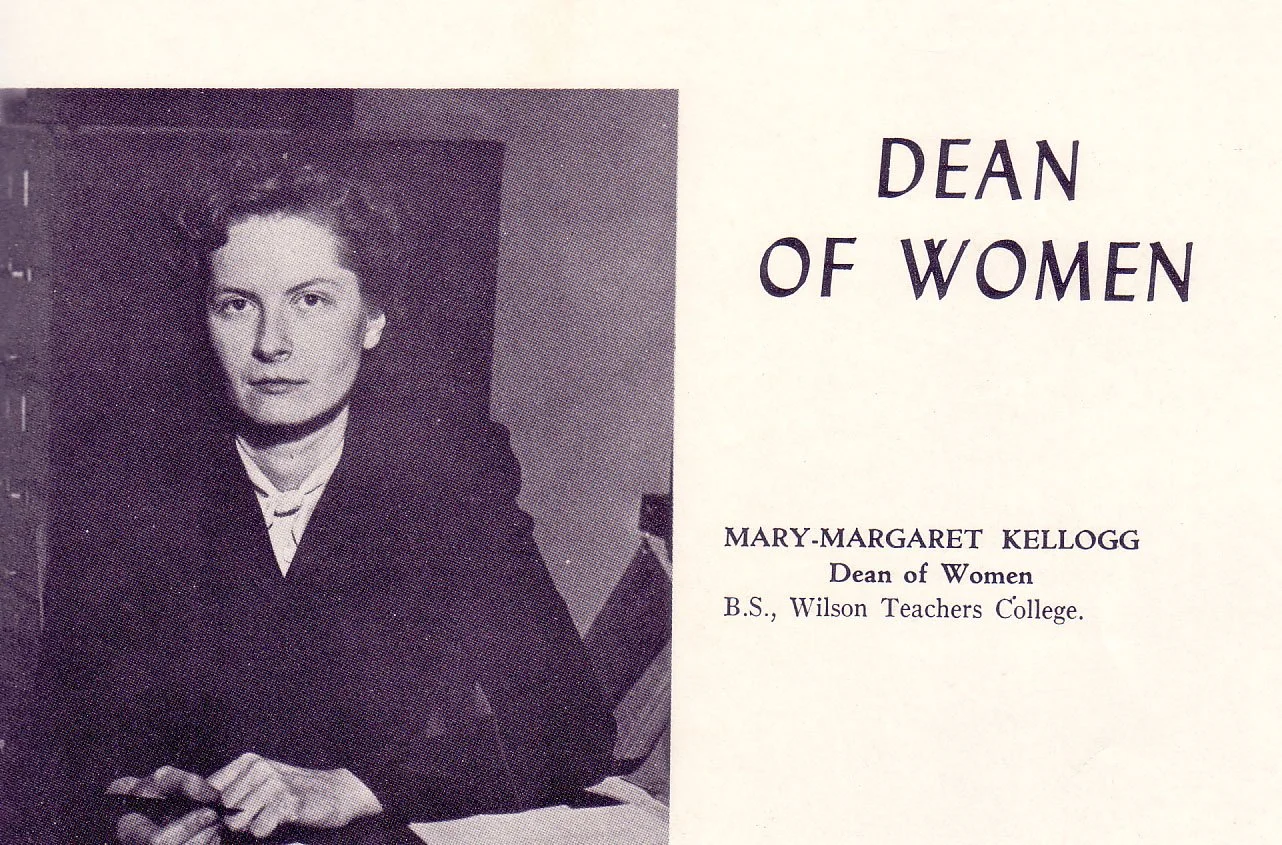Scholarships for Service and Justice
Through scholarships rooted in the Anglican Communion’s call to loving service and social transformation, the Association of Episcopal Colleges supports students who lead through compassion, justice, and community engagement.
Explore two unique awards that uplift students at our Episcopal institutions.

Scholarships
-

The Episcopal Colleges William Randolph Hearst Service Learning Scholarship
Application and Deadline
Download the application form here
Download the poster here
Applications must be received by Feb 9, 2026, for students entering college in fall 2026. Award decisions will be announced in late March 2026.
About the Scholarship:
The annual award of a William Randolph Hearst Service Learning Scholarship of US $20,000 (US $5,000 per year over four years) is made to an outstanding Episcopal student of an Episcopal School, with an emphasis on Service Learning and community service who matriculates at one of the six American Episcopal Colleges:
Bard College, Annandale-on-Hudson, New York
Hobart and William Smith, Geneva, New York
Kenyon College, Gambier, Ohio
St Augustine’s University, Raleigh, North Carolina
The University of the South, Sewanee, TN
Université d’Haiti (Port-au-Prince, Haiti, WI)
Voorhees University, Denmark, South Carolina
The Episcopal Church has a rich, vigorous tradition of educational institutions, with the Episcopal Colleges being complemented by over 1,200 Episcopal Schools nationwide. Established in 1997 as the William Randolph Hearst Scholarships, these awards emphasize learning through service supported by Episcopal schools and colleges.
Purpose and Criteria
The Episcopal Colleges Scholarship recognizes students who have been active Episcopalians in their school and/or home parish. Applicants must be able to demonstrate a strong record of Service Learning and community service, along with academic achievement in their junior and senior years, outstanding leadership, and a commitment to worship and community life in their school and/or parish.
Scholarship Applications
Applications are to be submitted to the CUAC office and must include:
—a letter of application
—a completed application form
—letters of recommendation from the head of the applicant’s school, from the student’s school chaplain or home parish rector, and from one of the faculty who has taught the applicant (in sealed envelopes with the submitter’s signature over the flap)
—a current transcript
The completed applications should be sent to:
Episcopal Colleges Scholarship Committee
Colleges & Universities of the Anglican Communion
815 Second Avenue
New York, NY 10017-4594Scholarship award process:
Applications will be reviewed by a committee appointed by the AEC. The General Secretary of CUAC–AEC will inform each recipient of the scholarship award and inform the school. Each scholarship award recipient must be accepted and matriculate at the Episcopal School listed in her or his application. Upon matriculation, a scholarship award will be prepared by the CUAC–AEC office and made payable to the Episcopal college for tuition or residence fees. In order to receive the scholarship in subsequent years, the college will be asked to send a letter each year notifying CUAC-AEC that the student remains enrolled, has made satisfactory academic progress, and is in good standing.
-

Mary-Margaret Kellogg Scholarship
The Association of Episcopal Colleges, the American Chapter of the Colleges and Universities of the Anglican Communion, is pleased to offer Mary-Margaret Kellogg Scholarships for Episcopal students active in their churches and attending one of the Episcopal Historically Black Colleges and Universities:
– Voorhees College in Denmark, South Carolina
– St. Augustine’s in Raleigh, North Carolina$5,000 awarded over four years for fees at one of the two colleges, based on successful academic progress
Application and Deadline
Download the application form here
For this scholarship a letter is required from the student’s Episcopal parish priest as well as a principal or teacher from their school or college. The deadline for applications for fall of 2025 is May 16, 2025.
Scholarship Award Process:
Applications will be reviewed, and the scholarship recipient(s) chosen, by a committee comprising Episcopal clergy and laity, appointed by the AEC. The General Secretary of CUAC–AEC will inform each recipient of the scholarship award and inform the school. Qualification for the scholarship is not complete, however, until the recipient is accepted into and matriculates at the Episcopal College listed in her or his application. Upon matriculation, a scholarship award will be prepared by the CUAC–AEC office payable to the Episcopal college for tuition or residence fees. In order to receive the scholarship in subsequent years, the college will be asked to send a letter each year notifying CUAC-AEC that the student remains enrolled, has made satisfactory academic progress, and is in good standing.
Sponsoring Organizations
Colleges and Universities of the Anglican Communion (CUAC) is a network of the Anglican Communion that seeks to support the mission and identity of some 150 Anglican-affiliated institutions of higher learning around the globe. By encouraging exchanges of faculty, students, and ideas, and promoting opportunities for learning and fellowship–particularly the Triennial Conference, hosted by members in each global region on a rotating basis–CUAC helps its members see how their common Anglican identity and ethos is lived out within the various cultures in which it has taken root.
The Association of Episcopal Colleges (AEC) is a consortium of colleges with historic and present ties to the Episcopal Church. Founded in 1962 and with headquarters in the Episcopal Church Center in New York, the Association is committed to supporting academic excellence and linking faith and values with learning and service. Diverse in curricula and constituency but united by common mission, the Episcopal Colleges represent some of the finest of the Church’s work within the world. Many are traditional liberal arts colleges; two have historically served the African American community; one was chartered to serve Hispanic immigrants; and three are outside the U.S., in Liberia, Haiti and the Philippines.

